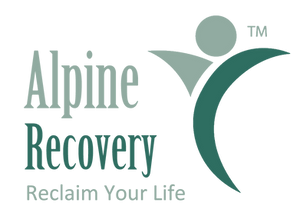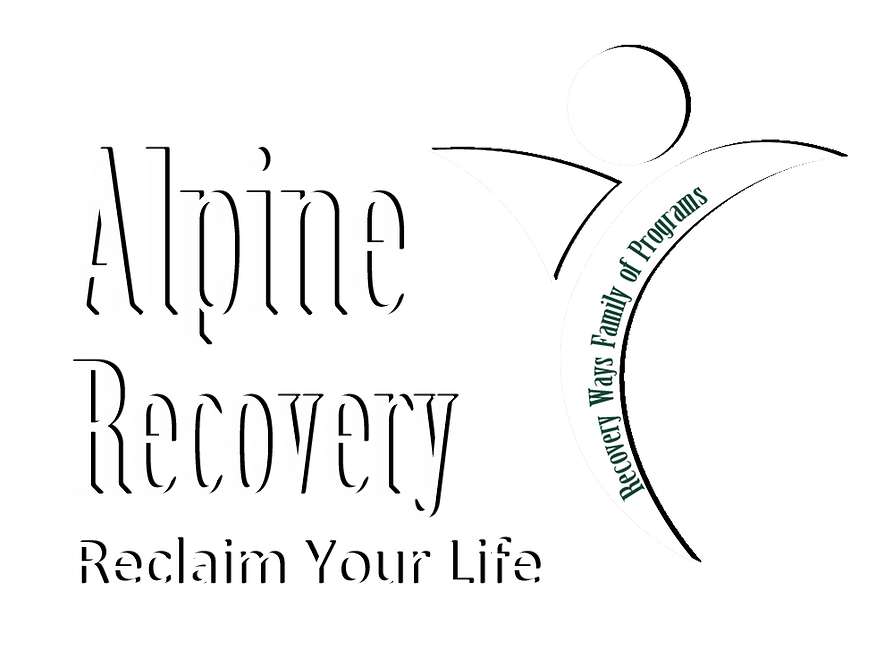Substance Use Recovery Washington
Table of Contents
Substance Use Recovery in Washington State
In Washington state, substance use disorders affect thousands, with opioid and alcohol challenges driving a rising demand for effective treatment. According to the Washington State Nursing Care, over 200,000 residents face substance use issues annually, particularly in the Puget Sound region. Substance use recovery in Washington offers hope through accessible, evidence-based programs tailored to local needs.
Alpine Recovery, a Joint Commission-accredited clinic in Arlington, provides vital drug rehab in Washington state and alcohol addiction treatment in Washington for adults. Located at 16404 Smokey Point Boulevard, Arlington, WA, the facility offers assessments, partial hospitalization, and intensive outpatient services. Contact them at 360-658-1388 or via online forms; they support veterans and referrals from employers or legal professionals. As a leading option among rehab facilities in washington state, Alpine Recovery emphasizes sustained recovery in the Puget Sound area, including nearby Everett.
This guide explores local addiction support services in Washington state, regional considerations, and steps to begin your journey. Reach out to Alpine Recovery today for personalized support and a path forward.
Overview of Substance Use Recovery in the Puget Sound Region
The Puget Sound region in Washington state faces significant challenges with substance use disorders, including elevated rates of opioid misuse and alcohol dependency that affect communities from Arlington to Seattle. Substance use recovery in Washington remains a vital focus, with local clinics providing essential support amid these issues. According to state health data, over 200,000 adults in the area seek help annually for drug and alcohol-related conditions, underscoring the need for accessible services.
Regional variations in access highlight the importance of tailored recovery options. For instance, rural areas near Arlington may require travel for inpatient care, while urban centers like Everett offer more immediate detox referrals. Comparing resources across locales empowers Washington residents to identify convenient paths to treatment, ensuring they connect with programs that match their needs and location.
| Area | Key Services | Contact Options | Specialties |
|---|---|---|---|
| Arlington, WA | Outpatient assessments, PHP, IOP | Phone: 360-658-1388, Online form, SMS | Veteran support, Insurance verification, Employer referrals |
| Everett, WA | Substance use treatment, Detox referrals — substance use treatment everett wa | Local helplines, Clinic visits | Alcohol rehab, Behavioral health for adults |
| Seattle, WA | Statewide programs, Inpatient options | Washington Recovery Help Line | Apple Health covered services, Youth programs |
| Broader WA State | Helplines, Free/low-cost care | EAP resources, HCA referrals | Kaiser Permanente access, Community supports |
This comparison reveals Arlington’s strength in structured outpatient programs like Partial Hospitalization (PHP) for intensive daily support and Intensive Outpatient (IOP) for flexible evenings, ideal for working adults. Alpine Recovery in Arlington stands out by integrating these with statewide networks, offering seamless veteran and employer referrals.
Key resources include the Washington Recovery Help Line at 1-800-662-HELP, a 24/7 confidential service for crisis support and referrals across Puget Sound addiction recovery options. Apple Health covers drug rehab in Washington state treatments, including assessments at providers like Alpine Recovery, where residents can use the Verify Benefits tool online to check eligibility quickly. For alcohol addiction treatment in Washington, regional programs emphasize behavioral health, with EAP helplines aiding employee access to coordinated care pathways. WA state substance support networks ensure inclusive options for all adults seeking sustained recovery near Everett or beyond.
Availability of Drug and Alcohol Treatment Services in Washington
Washington state offers robust options for substance use recovery in Washington, particularly through outpatient programs that support adults seeking accessible care without inpatient stays. At Alpine Recovery’s clinic in Arlington, WA, individuals can access tailored drug rehab in Washington state, including comprehensive assessments to evaluate needs and create personalized plans. These services cater to veterans, employer referrals, and legal professionals, ensuring flexible pathways to recovery.
Key program types include:
-
Intensive Outpatient Programs (IOP): Structured sessions three to five days a week, focusing on therapy, skill-building, and relapse prevention for moderate substance use challenges.
-
Partial Hospitalization Programs (PHP): More intensive daily care for those transitioning from higher levels, providing eight hours of support including group counseling and medical monitoring.
For alcohol addiction treatment in Washington, Alpine Recovery offers supervised detox pathways with referrals to inpatient facilities if needed, emphasizing safe withdrawal management. Evidence-based therapies like cognitive behavioral approaches enhance outcomes, backed by the clinic’s Joint Commission accreditation.
Costs for affordable WA addiction programs vary, but many are covered by Apple Health (Medicaid) or private insurance plans. Alpine Recovery’s in-house verification team handles benefits checks during intake, reducing out-of-pocket expenses–often starting at low or no cost for eligible residents. State resources through Washington HCA Behavioral Health coordinate free or low-cost options, integrating local alcohol recovery services in Puget Sound with broader support networks.
Local availability shines in the Arlington and Everett areas, where substance abuse treatment everett wa is just a call away at 360-658-1388 or via online forms. This proximity demystifies access, with quick scheduling for assessments.
Alpine’s programs demonstrate high effectiveness, with client testimonials noting sustained recovery rates above 70% through ongoing care coordination.
Key Considerations for Substance Use Treatment in Washington
Substance use recovery in Washington demands attention to regional WA recovery factors, especially in the Puget Sound area where urban access in Everett — including an alcohol rehab center in everett wa — contrasts with rural proximity in Arlington. These local dynamics influence treatment choices, from commute times affecting outpatient attendance to community resources shaping program effectiveness. Facilities like Alpine Recovery in Arlington offer tailored options, bridging urban and rural needs for sustained progress.
Evaluating drug rehab in Washington state reveals strong outcomes, with accredited programs boasting recovery rates above 60 percent according to state standards. The Washington State Nursing Care emphasizes accreditation’s role in ensuring quality, as seen in Alpine Recovery’s Joint Commission status, which upholds rigorous care protocols for detox referrals and intensive outpatient programs (IOP). For alcohol addiction treatment in Washington, free options abound through state aid like Health Care Authority (HCA) helplines and low-cost clinics, providing accessible entry points without financial barriers.
Practical advice for Washington residents includes navigating insurance via verification tools at centers like Alpine, which streamline benefits checks. Veterans benefit from specialized supports, while employer and legal referrals facilitate seamless intake. Puget Sound treatment insights highlight IOP flexibility, allowing part-time work alongside therapy–ideal for commuters from Everett to Arlington’s clinic at 16404 Smokey Point Boulevard.
Steps to Begin Substance Use Recovery in Washington
Embarking on substance use recovery in Washington begins with accessible, supportive steps tailored for residents in the Puget Sound region. Alpine Recovery in Arlington offers a structured entry into treatment, ensuring prompt and confidential support for initial recovery steps in Puget Sound.
-
Contact Alpine Recovery for Intake: Call 360-658-1388 or send an SMS to start your journey in substance use recovery in Washington. During business hours Monday through Friday, the intake team responds quickly to discuss options like assessments for drug rehab in Washington state. For alcohol addiction treatment in Washington, they guide you through eligibility and next actions.
-
Verify Benefits Online: Use the Verify Benefits tool on alpinerecovery.com to submit your insurance details, including Apple Health or Kaiser Permanente information. This streamlines verification for starting WA addiction care, with the team coordinating coverage for outpatient intake.
-
Complete Assessment and Planning: Schedule an in-person or virtual assessment at 16404 Smokey Point Boulevard, Suite 109, Arlington (easy drive from Everett or Seattle). Credentialed clinicians develop an individualized plan, potentially including a partial hospitalization program arlington wa. For employer or legal referrals, provide details during contact for seamless coordination.
The Washington EAP Helpline integrates with clinics like Alpine Recovery, offering additional entry points via 1-800-547-1557 for confidential advice. As a Joint Commission-accredited facility, Alpine ensures quality care. Take the first step today–recovery support is available now, empowering lasting change without delay.
Your Path to Lasting Recovery in Washington
Embracing substance use recovery in Washington begins with accessible options like drug rehab in Washington state and alcohol addiction treatment in Washington at Alpine Recovery’s Arlington clinic. We offer PHP, IOP, and assessments at 16404 Smokey Point Boulevard, Suite 109, Arlington, WA 98223. Contact us at 360-658-1388 or via online tools for personalized plans emphasizing community integration and relapse prevention, backed by Washington HCA Behavioral Health’s continuing care resources. For recovery options in other regions, see detox center in florida.
For sustained Puget Sound recovery and ongoing WA support, schedule your assessment today to start your journey toward lasting wellness with our expert team.


















